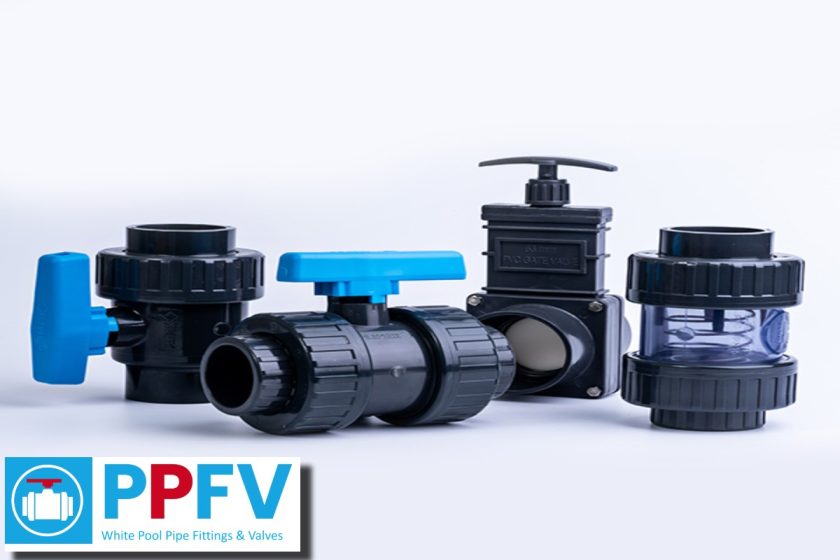When it comes to maintaining your swimming pool, ensuring proper water circulation and control is paramount. One often-overlooked but crucial component in achieving this is swimming pool valves. These unassuming devices play a vital role in regulating water flow, backwashing, and overall pool operation. In this article, we will dive deep into the world of swimming pool valves, exploring their types, functions, and how to choose the best one for your pool. Whether you’re a seasoned pool owner or a newbie in the aquatic world, understanding swimming pool valves is key to keeping your pool crystal clear and enjoyable throughout the seasons.
Types of Swimming Pool Valves:
Swimming pool valves come in various types, each serving a specific purpose in the pool’s plumbing system. Let’s take a closer look at the most common types:
Multiport Valves:
Multiport valves are versatile and commonly found in sand and DE filter systems. They allow you to switch between various functions such as filtration, backwashing, rinsing, and more, making them a go-to choice for many pool owners.
Ball Valves:
Ball valves are known for their durability and reliability. They use a spherical ball with a hole in the middle to control water flow. These valves are ideal for shutting off water completely when needed, like during maintenance or repairs.
Check Valves:
Check valves ensure that water flows in one direction, preventing backflow and maintaining proper water circulation. They are often used in the pool’s plumbing to keep water moving in the right direction.
Gate Valves:
Gate valves are straightforward and control water flow by raising or lowering a gate inside the valve body. While they are less commonly used in modern pool systems due to their limited control options, they can still be found in some older setups.
Functions of Swimming Pool Valves:
Swimming pool valves perform several vital functions that contribute to the overall efficiency and performance of your pool:
Flow Control:
Valves regulate the flow of water through different parts of the pool system, allowing you to adjust the water speed and pressure as needed. This is crucial for maintaining water quality and ensuring proper filtration.
Backwashing:
Multiport valves, in particular, play a pivotal role in backwashing your pool’s filter. Backwashing reverses the water flow through the filter to remove trapped debris and contaminants, keeping your pool water clean and clear.
Chemical Feeding:
Valves are essential for introducing pool chemicals into the water. Whether it’s chlorine, pH adjusters, or algaecides, valves help you distribute these chemicals evenly, ensuring effective water treatment.
Water Diversion:
Valves allow you to divert water to different parts of your pool system, such as the pool heater, spa, or water features. This versatility enhances the overall pool experience and maximizes energy efficiency.
Choosing the Best Swimming Pool Valves:
Selecting the right swimming pool valves is crucial for your pool’s functionality and longevity. Here are some factors to consider when making your choice:
Valve Material:
Valves can be made from various materials, including PVC, CPVC, and brass. The material you choose should be compatible with your pool’s plumbing system and resistant to corrosion and chemical damage.
Size and Compatibility:
Ensure that the valve size matches your plumbing system’s specifications. Compatibility is key to avoiding leaks and maintaining proper water flow.
Valve Type:
Consider the type of valve that best suits your needs. Multiport valves are excellent for filtration systems, while ball valves are ideal for on/off control. Choose the type that aligns with your pool’s requirements.
Durability:
Invest in high-quality valves that are built to withstand the demands of pool operation and the elements. Reliable valves will save you money and hassle in the long run.
Ease of Maintenance:
Look for valves that are easy to maintain and repair. Quick and straightforward maintenance can extend the lifespan of your pool valves.
Conclusion:
Swimming pool valves may not be the star attraction of your pool, but they are undoubtedly the unsung heroes that keep everything flowing smoothly. From controlling water flow to maintaining water quality, these small but essential components play a crucial role in the overall performance of your pool. By understanding the different types and functions of best swimming pool valves and selecting the best ones for your pool’s needs, you can ensure that your swimming oasis remains crystal clear and inviting all year round. So, don’t underestimate the importance of these valves – they are the key to unlocking the full potential of your swimming pool.

